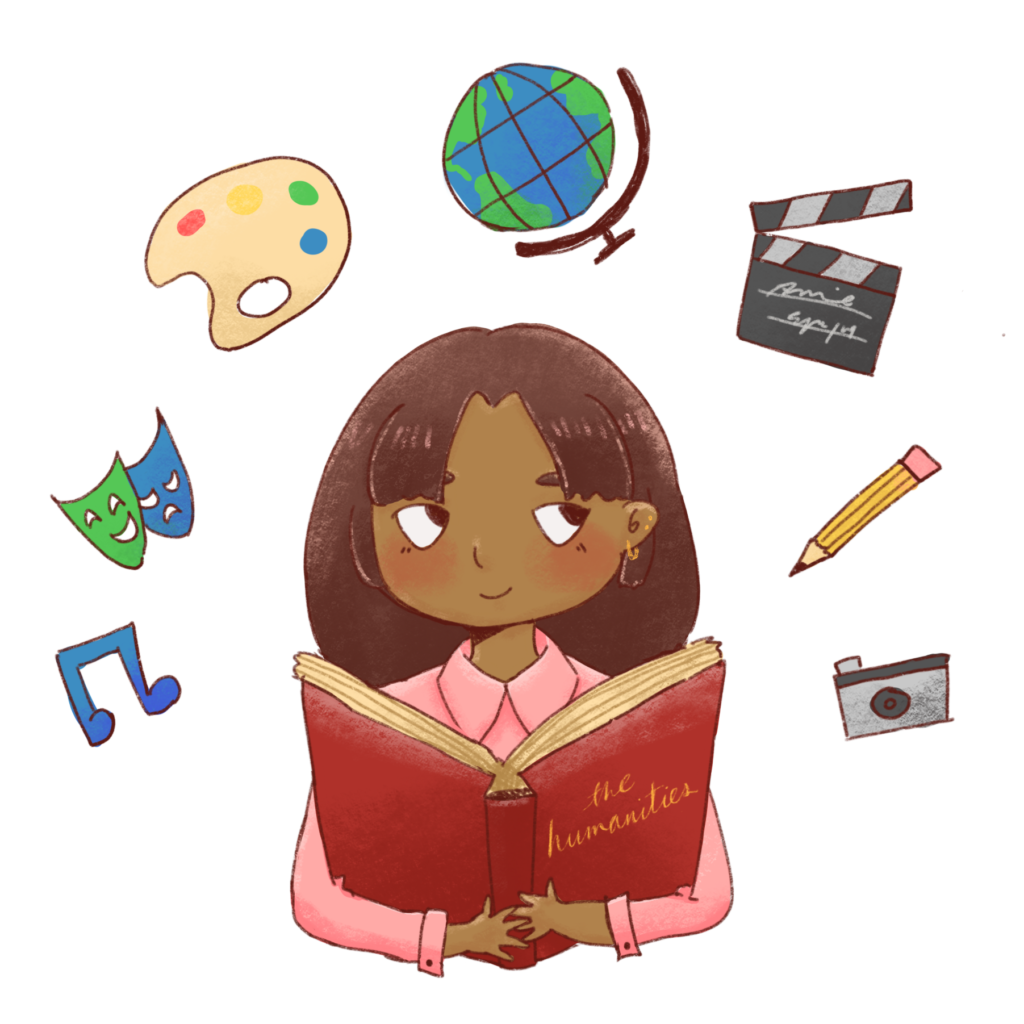Katie Kitamura, an acclaimed novelist and recently named 2025 Guggenheim Fellow, is stirring conversations about her latest work, “Audition.” This thought-provoking novel explores the unsettling edges of midlife and family dynamics within a New York City apartment. In an insightful Katie Kitamura interview, she delves into her engagement with horror in literature, drawing inspiration from classics like “Rosemary’s Baby.” As part of her upcoming visit to the Harvard Mahindra Center, she will discuss the nuanced themes of performance and privacy that permeate her fiction writing. With “Audition,” Kitamura continues to captivate readers, offering profound insights into the dark corners of human relationships and identity.
In her newest publication, Kitamura navigates themes reminiscent of unsettling psychological tales, placing readers in a contemporary setting rife with tension and ambiguity. The narrative unfolds amidst the complexities of family life and personal transformations, echoing sentiments often reflected in significant societal shifts. Much like her previous novels, Kitamura’s adept storytelling uses the backdrop of urban existence to amplify emotional dissonance, urging readers to confront the uncomfortable realities they may face in their own lives. This genre-blending approach opens a dialogue about the fear and uncertainty that can arise from the roles we play in public and private spaces, revealing deeper truths hidden beneath the surface.
Katie Kitamura: Exploring Horror’s Influence in Audition
In her latest novel “Audition,” Katie Kitamura delves into the weird and unsettling aspects of everyday life, particularly in the context of midlife crises. While readers might not expect horror from a contemporary literature standpoint, Kitamura’s approach defies these conventions. She acknowledges the importance of genre, sharing how her previous works have taken on different forms, from mystery in “A Separation” to courtroom drama in “Intimacies.” Through this lens, Kitamura skillfully intertwines elements of horror, drawing inspiration from classics like ‘Rosemary’s Baby.’ At its core, ‘Audition’ leverages the uncanny feeling of familiarity transforming into strangeness, an essential facet that puts her in conversation with the horror genre.
The psychological tension in Kitamura’s narrative reflects the horror inherent in family dynamics and urban living. By placing her characters in confined spaces—an apartment in New York City—she heightens the suspense and explores how our perception of those closest to us can become distorted. The idea that you might see someone you love as a stranger reveals the fragility of human connections, an element that can evoke fear as effectively as any supernatural occurrence. In embracing horror, Kitamura raises important questions about identity and reality within domestic spaces.
In discussing the eerie undertones of ‘Audition,’ Kitamura addresses how external circumstances, such as those stemming from the pandemic, inadvertently shape narrative tones. While she initially did not intend to write a pandemic novel, the influence of isolation and interpersonal confinement inevitably seeped into her work. The thematic representation of a claustrophobic apartment setting brings to mind the discomfort of navigating personal relationships during tumultuous times, echoing the emotions many experienced during real-world crises. As characters grapple with hidden truths and secrets, their interactions resonate with readers, invoking a shared anxiety that reflects broader societal tensions.
The Role of Performance in Janet Kitamura’s World
Performance lies at the heart of Kitamura’s exploration of human relationships in “Audition.” The protagonist, an actor, is intricately attuned to the performances of those around her, a theme Kitamura has woven throughout her work. This focus on performance highlights the nuances of identity, revealing how people shape their interactions based on context. In an era where authenticity is continually questioned, Kitamura’s insight provides a thought-provoking look at the masks we wear in our daily lives—both in personal and public settings. As the characters navigate their roles, we are reminded that performance is a natural part of existence, one that can foster connections but also lead to disillusionment when perceived roles don’t align with reality.
As Kitamura discusses the flexibility of identity, she emphasizes that discovering the cracks in these crafted personas can be unsettling yet enlightening. The moments when individuals reveal their true selves, often unintentionally, create a tension that Kitamura masterfully depicts in her storytelling. By allowing these glimpses of vulnerability to emerge, she taps into the uneasy balance between understanding and misunderstanding within relationships. The fear of truly knowing someone—and the fear of being known—mirrors the unpredictability of the human experience, resonating deeply with audiences.
Moreover, Kitamura’s reflections on performance extend beyond individual identities to encompass the larger societal dynamics prevalent in our world. The current political climate has left many questioning the power of narratives, prompting discussions on how storytelling intersects with cultural representation. In her teaching at New York University, Kitamura shares these insights with her students, emphasizing that fiction serves as both a mirror and a lens through which we can assess reality. In a world rife with misinformation and division, the role of performance in literature holds profound significance, illuminating how we understand ourselves and each other.
Navigating Privacy in Relationships: Insights from Katie Kitamura
In her exploration of relationships in “Audition,” Katie Kitamura raises vital questions about privacy and the layers of intimacy that define our interactions. She believes that a successful relationship involves a certain level of privacy, arguing against the notion of complete transparency. This perspective acknowledges that while closeness is vital, maintaining boundaries allows for individuality—a theme she intricately interweaves throughout her narrative. Kitamura’s exploration of family dynamics highlights how secrets and hidden aspects of identity shape our connections, fostering both familiarity and estrangement within relationships.
Kitamura suggests that our desire for complete openness might be unrealistic and could lead to unhealthy expectations. Instead, recognizing and respecting the parts of ourselves we choose to keep private serves not only to protect our bonds but also to enrich them. As readers engage with her characters, they are invited to ponder their own relationships, examining the balance of intimacy and the necessary distance that sustains engagement without overwhelming the connection.
This nuanced understanding of privacy and performance raises essential considerations in our current cultural climate, making Kitamura’s insights particularly relevant. In an age marked by social media oversharing and public scrutiny, the need for boundaries has never been more pressing. By advocating for the beauty of hidden depths within relationships, Kitamura highlights how establishing such boundaries fosters healthier, more robust connections. Her narrative subtly encourages readers to reflect on their interactions and the importance of nurturing respect for both personal space and shared experiences.
Katie Kitamura’s Creative Process and Fiction Writing Insights
Katie Kitamura’s creative process, particularly as it relates to her latest novel ‘Audition,’ reveals rich insights into the world of fiction writing. Kitamura describes her significant role as a storyteller, emphasizing that fiction is not merely a reflection of reality but an opportunity to reimagine it. Discussions with her students about the relevance of fiction during tumultuous times engage the heart of her artistry, illustrating that the power of storytelling can manifest even amidst societal chaos. According to Kitamura, understanding the intricate dance between observing reality and enacting change through narrative faculty manifests vital creativity in confronting existential doubts.
As Kitamura elegantly articulates, the act of writing offers not only an escape but also a means of grappling with complex emotions and truths. For aspiring writers and readers alike, her journey serves as a reminder that creativity flourishes in the intersections of personal experience and cultural commentary. Engaging with literature becomes a way to navigate tough questions, exploring the nuanced landscapes of identity and morality woven throughout her narratives.
Moreover, the importance Kitamura places on language reflects a broader assertion about fiction’s role in society. In a time when creative expressions face challenges, from censorship to the rise of artificial intelligence in content creation, Kitamura believes fiercely in the necessity of maintaining control over language. Her advocacy for the power of the written word champions the enduring relevance of literature as a tool for connection and understanding. Providing her students with insights drawn from her own practice demonstrates Kitamura’s commitment to nurturing future generations of writers, reaffirming that narrative exploration remains a vital response to contemporary issues.
The Intersection of Literature and Art: A Conversation with Katie Kitamura
Katie Kitamura’s works are deeply interwoven with themes of art and literature, highlighting the inseparable relationship between the two disciplines. Through her narratives, she often reflects on the interplay between storytelling and visual forms, enriching her exploration of human experience. As she embraces her role as a novelist and writing instructor, Kitamura encourages her students to recognize the broader implications of their artistic pursuits. This dialogue between literature and visual art enhances her work, allowing for multilayered interpretations of her characters and their journeys.
Within the context of her latest novel, ‘Audition,’ Kitamura makes poignant connections to the world of performance and its role in interpreting life’s complexities. The rich tapestry of references in her writing illustrates the significance of visual art on personal expression, as demonstrated by her protagonist’s experiences as an actor. As readers uncover the inherent connections between art and literature, Kitamura’s work becomes more than just a narrative; it serves as a gateway for deeper conversations about creativity, identity, and the forces that shape our perceptions.
Moreover, Kitamura’s perception of art’s impact on literature encourages reflection among readers about the boundaries between creative forms. By actively engaging with different art forms, she underlines the importance of fostering creativity that transcends conventional expectations. This artistic fluidity also fosters critical thinking, pushing readers to see beyond the confines of traditional narratives and embrace the innovative possibilities that come with interdisciplinary approaches. As she advocates for a synthesis of artistic expressions, Kitamura empowers both writers and readers to cultivate their voices in a complex interconnected world.
Literature as Resistance: Katie Kitamura’s Perspective
Katie Kitamura passionately advocates for literature as a powerful tool for resistance in today’s sociopolitical landscape. In her teaching, she often challenges her students to consider the profound impact fiction can have on society and the individual. The act of writing and engaging with literature becomes a means of asserting one’s voice, reflecting the struggles and experiences of marginalized communities. Kitamura argues that the ongoing battle against censorship and limited narratives only underscores the necessity of diverse perspectives in literature, particularly in challenging times when voices must rise against oppressive forces.
Her perspective highlights that the written word holds immense power; in a world where books are frequently banned and unfavored ideas are suppressed, Kitamura emphasizes the importance of literary expression. Each novel crafted serves not just as a form of entertainment but as a crucial reflection of collective consciousness and the potential for social change. Through these conversations in her classrooms, she inspires her students to embrace their roles as storytellers, thereby fighting for representation and authenticity within literature.
In a time when misinformation abounds, Kitamura’s belief in the value of accurate representation and the power of storytelling remains steadfast. She underscores the idea that fiction can act as a mirror—a means to reflect society’s realities while also serving as a platform for aspiring change. The narratives we craft today have the potential to inspire tomorrow’s world, acting as blueprints for a society shaped by understanding and inclusivity. By encouraging her students to write with intention and authenticity, Kitamura fosters a new generation of writers capable of addressing crucial social issues through their art.
The Impact of Pandemic on Literature: Insights from Katie Kitamura
The COVID-19 pandemic has influenced numerous artists, and Katie Kitamura is no exception. As she reflects on the development of ‘Audition,’ she acknowledges the unintentional infusion of pandemic themes into her work. Although the novel does not explicitly reference masks, vaccines, or social distancing, the undertones of confinement and anxiety pervade the narrative. Through her exploration of family dynamics in a small apartment, Kitamura taps into the universal feelings of closeness and frustration many experienced during lockdown. This examination of psychological impact amidst societal turmoil highlights the intricate ways contemporary events shape creative expression.
Kitamura’s understanding that writers cannot help but absorb the zeitgeist subtly emerges in her storytelling. As she navigates the duality of narrative intent and external realities, she invites readers to engage with the complexities of life that persist amid challenging circumstances. The nuances captured in ‘Audition’ ultimately remind us of literature’s power to mirror and process the emotional landscapes crafted during tumultuous times.
Furthermore, Kitamura’s reflections on her writing during the pandemic underscore the importance of fiction as a response to shared experiences. The emotions of isolation, anxiety, and the strain of close relationships precariously reflect the atmosphere during the pandemic while enriching her characters’ journeys. Literature often serves as a cathartic exercise, helping both writers and readers articulate feelings that might otherwise remain unspoken. As Kitamura embraces this dynamic within her narrative, she reinforces literature’s role in providing solace and understanding during bewildering times, ensuring that the power of storytelling continues to resonate.
The Significance of Storytelling: Lessons from Katie Kitamura
Katie Kitamura profoundly believes in the significance of storytelling, especially in the realm of contemporary literature. In her discussions with students and audiences, she frequently highlights how stories provide not only entertainment but a means to explore complex themes and emotions. Through her novels, she demonstrates that fiction can bridge divides, offer new perspectives, and foster empathy among readers. This commitment to storytelling is especially crucial during times of division and strife, where connections can often seem fragile or tenuous. The capacity of narrative to convey the depths of human experience ultimately serves as a reminder of our shared humanity in an often chaotic world.
Moreover, Kitamura underscores the notion that storytelling holds the potential to challenge norms and rethink societal narratives. As she encourages her students to embrace their unique voices, she empowers them to explore multifaceted issues that may be marginalized or overlooked. Storytelling becomes a vehicle for change and a celebration of individuality, enabling writers to articulate their truths and engage with pressing contemporary challenges through their works.
As Kitamura’s journey unfolds, it serves as a testament to the enduring importance of literature in all its forms. The experiences shared through her novels remind readers of the cathartic power of storytelling — to heal, connect, and communicate. The lessons derived from her work illuminate the necessity of preserving narratives in an increasingly complex world, emphasizing that writers and readers alike have essential roles in shaping conversations around identity, experience, and belonging in literature.
Frequently Asked Questions
What insights does Katie Kitamura share about horror in literature during her interview?
In her interview, Katie Kitamura discusses her engagement with horror as a genre in her latest novel, “Audition.” She explains how horror reveals uncanny moments where familiar relationships appear strange, echoing themes from classics like “Rosemary’s Baby.” Kitamura highlights that the truly frightening moments arise when perceptions shift, prompting a deep exploration of the human psyche.
How does Katie Kitamura explore themes of performance in her novel ‘Audition’?
Katie Kitamura delves into the theme of performance in her novel ‘Audition’ by illustrating how characters navigate life through adaptive roles. She emphasizes that while it may seem she critiques performances, her intent is to highlight their necessity in human interactions. This exploration raises questions about the authenticity of relationships and the boundaries of privacy.
What relationship does Katie Kitamura draw between midlife challenges and her newest novel ‘Audition’?
In her conversation, Katie Kitamura links midlife challenges to the character’s experiences in ‘Audition,’ where uncertainty and familial dynamics shape the narrative. The character faces potential success alongside fears of downfall, echoing broader themes of identity and transformation that resonate deeply with the realities of middle age.
How did the pandemic influence Katie Kitamura’s writing of ‘Audition’?
Katie Kitamura acknowledges that ‘Audition’ was shaped by her experiences during the pandemic, incorporating themes of confinement and familial tension. While there are no explicit references to the pandemic, the feeling of being trapped in a small space with family reflects the collective atmosphere of that time, showcasing how writers absorb their environment.
What does Katie Kitamura suggest about the importance of fiction writing in contemporary society?
Katie Kitamura asserts that fiction writing remains crucial in contemporary society, especially in the face of political and ecological crises. During a workshop discussion, she emphasized that literature possesses the power to challenge authority and provoke thought, making it vital for both understanding the world and envisioning alternate realities.
What are Katie Kitamura’s views on teaching fiction writing, especially in today’s context?
Katie Kitamura believes that teaching fiction writing is more important than ever, as it empowers students to explore language and expression intimately. She maintains that literature fosters connection and community, proving its relevance as a tool for navigating complex societal issues amidst the challenges of modern times.
Can you outline Katie Kitamura’s background in relation to her literary achievements?
Katie Kitamura, renowned for her compelling narratives and psychological depth, has published five novels, including ‘Audition’ and ‘Intimacies.’ She is a notable figure in contemporary literature, recognized as a Guggenheim Fellow in fiction for 2025. Her academic background and teaching role at institutions like New York University further enhance her insights into fiction writing.
How does Katie Kitamura’s experience as a novelist influence her perspective on privacy in relationships?
Katie Kitamura emphasizes the significance of privacy in relationships, arguing that complete transparency isn’t healthy. As a novelist, her exploration of nuanced character interactions reveals how deeply personal aspects should remain concealed, allowing individuals to maintain a sense of self, which adds complexity to her narratives.
| Key Point | Details |
|---|---|
| Katie Kitamura’s New Novel | Kitamura’s fifth novel, ‘Audition’, explores the unsettling experience of midlife and familial dynamics in a New York City apartment. |
| Engagement with Horror Genre | Kitamura considers the horror genre, inspired by ‘Rosemary’s Baby’, to reveal the unsettling aspects of familial relationships. |
| Pandemic Influence | Written during the pandemic, elements of the story reflect the discomfort of close quarters, despite the absence of direct pandemic references. |
| Performance and Identity | The theme of performance in relationships is explored; Kitamura suggests that understanding each other is complex and layered. |
| Importance of Fiction | Fiction serves to observe and envision reality, making it crucial in times of crisis, as articulated in her teaching to students. |
Summary
Katie Kitamura’s explorations into the complexities of human relationships and identity highlight the significance of fiction in today’s world. In her latest novel ‘Audition’, she delves deep into the unsettling nuances of midlife and familial dynamics, drawing inspiration from the horror genre. Kitamura’s insights into the nature of performance in our interactions reflect a keen understanding of the human psyche. As she engages with her audience at Harvard, her discussion reinforces the idea that literature plays a vital role, especially in turbulent times, offering not only a mirror to our realities but also a vision for alternate possibilities.



